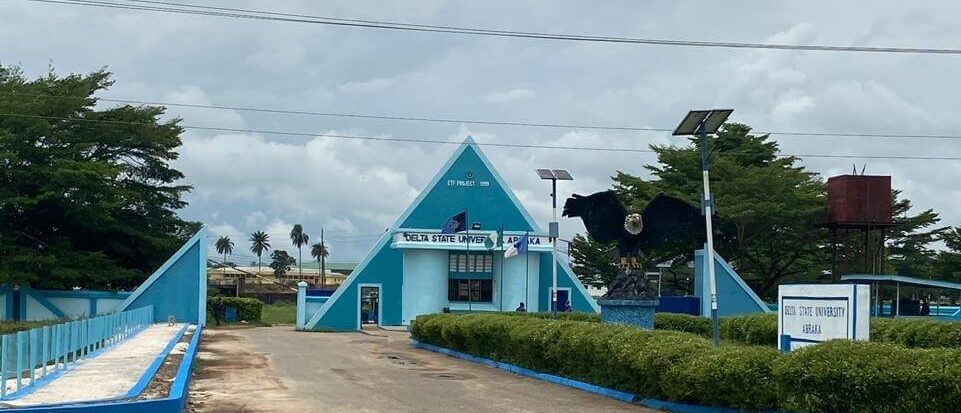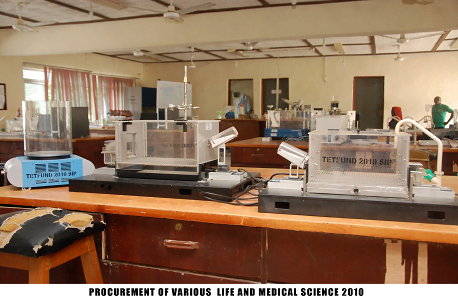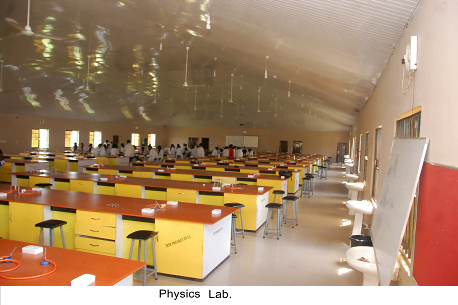The Department of Fisheries started as Department of Animal Science and Fisheries when the Faculty of Agriculture was created. The Department of Animal Science and Fisheries was created alongside three other departments, namely: Agricultural Economics and Extension, Crop and Soil Science, and Forestry and Wildlife Management at the inception of the Faculty of Agriculture.
The Department of Animal Science and Fisheries had been awarding two degrees: Bachelor of Agriculture (Animal Science) and Bachelor of Fisheries (B. Fisheries).
Recommended articles specially for you
- How to Easily Gain Admission into Delta State University (Delsu)
- How to Pass DELSU Post utme (Absolute Guide)
- Top 4 Mistakes Delsu Aspirants Make – (Number 2 will shock you)
- How to Check Your DELSU Post UTME Result Easily
- Delsu Change of Course & How to Apply (Guide)
- Updated List of All the Courses Offered in Delta state university
- 7 Understandable Reasons Why you will NOT GAIN Admission into DELSU
The department was designed to equip her graduates with the right technical and entrepreneurial skills / capacity necessary to appropriate their scientific know how for the advancement of the fisheries and aquaculture sub-sectors.
Also, it is concerned with the development of practical solutions to agricultural production problems vis-à-vis fisheries production and management, maintenance of good water quality and aquatic biodiversity conservation. Our graduates automatically qualify for membership of the Fisheries Society of Nigeria (FISON).
VISION
To promote knowledge and provide solutions needed in tackling the challenges of fish production, and the management of aquatic environments through quality education, scholarly research and service delivery; enhancing economic opportunities in Nigeria.
PHILISOPHY
The Department of Fisheries philosophy is to produce fisheries and aquaculture experts with the right competence that would enable them to harness the tremendous opportunities in agriculture through designing appropriate technologies that are demand-driven in response to local needs for sustainable fisheries and aquaculture that is economically viable and profitable, socially acceptable, and environmentally friendly.
OBJECTIVES of Department of Fisheries
- To produce the appropriate manpower equipped with necessary skills to establish and profitably operate fisheries enterprises;
- To improve the genetic stock and introduce scientific fisheries management in the Niger Delta river ecosystems;
- To promote fisheries and aquaculture production and productivity by artisanal fisherfolks and small scale farmers, thereby providing solutions to the country’s fisheries and aquaculture problems and challenges;
- To equip our graduates with the right technical and entrepreneurial skills and capacity necessary to appropriate their scientific know how for the development of practical solutions and the advancement of the fisheries and aquaculture sub-sectors; and
- To develop appropriate technologies that would be demand-driven in response to local needs and resolve ecological challenges for increased and sustainable fisheries and aquaculture productivity.
ADMISSION REQUIREMENTS INTO THE DEPARTMENT OF FISHERIES
Candidates seeking admission into Fisheries programme must:
- Pass the UTME, which must include Use of English, Chemistry, Mathematics or Physics, and Biology or Agricultural Science.
- Pass the Post-UTME screening exercise of the University.
- Possess five credits in GCE/SSCE/NECO in the following subjects: Mathematics, English Language, Chemistry, Biology or Agricultural Science and any one of Physics, Economics or Geography at not more than two sittings.
STRUCTURE AND PERIOD OF STUDIES IN THE UNIVERSITIES, INDUSTRIAL TRAINING, PLANNED VISITS AND PROJECTS
Students spend a minimum of five academic sessions (that is, 10 semesters) to complete the programme.
The students are first exposed to external farm environment courtesy of farm practice and field course at 200 and 300 Levels, respectively that require excursions and field trips to any functional farm, usually an integrated farm within or outside the state.
The whole of the fourth year is used for Industrial Training (IT) programme (also referred to as the Students’ Industrial Work Experience Scheme; SIWES) at relevant farms and/or institutions.
Also, as part of strategies to strengthen our relationship with the industry partners for the IT programme to enhance the practical skills of students, we have also signed Memorandum of Understanding (MOU) with Domita Farms and intend to do so for others for a more sustainable and mutually rewarding IT programme (SIWES).
EXAMINATION
Examiners ensure that question papers are prepared under strict security and made available in time for moderation by one or two very senior and trusted colleagues in the Department.
Students are checked into examination halls using authenticated register of students for each course using registration/identity card, at least, 30 minutes before the commencement of the exam. The Head of Department is responsible for conducting course examinations, except otherwise then the Dean does so. During examinations, security is stepped up around centres to ensure safety of students, invigilators and supervisors.
Degree questions are subjected to external moderation by an external examiner approved by the Senate of the University. Results are returned in quadruplicate distributed as follows:
A copy to the course lecturer, a copy to the Head of Department and two copies to the Dean who signs and returns one copy of the mark sheet to the Department. Summary of results for all courses taken in the Department, with the dates of departmental and faculty board meetings reflected on them are then presented to the Extra-ordinary meeting of Senate.
ACADEMIC ATMOSPHERE of The Department of Fisheries
Taught courses in the department include tutorial, laboratory practical and farm demonstration components. Each student registers between 15 and 24 credit units and the Department ensures that students comply with the mandatory lecture 75% attendance to qualify for the semester examinations. A CGPA of one point is the minimum graduation point.
CRITERIA FOR GRADUATING STUDENTS
- Students shall be allowed to graduate with a maximum of any two (2) failed courses, provided these are not Research Projects, Design Project, Teaching Practice,
- Student Industrial Work Experience Scheme (SIWES), GST Courses, and Year Abroad Programme.
- The following courses; Research Projects, Design Project, Teaching Practice, Student Industrial Work Experience Scheme (SIWES), GST Courses, Year Abroad Programme and Community Service Course must be used in computing the degree results.
- The minimum requirements for the award of degree in the Department of Animal Science and Fisheries are 150 credit units and a maximum of 210 credit units for a 5-year programme. All courses taken from Years 3 – 5 are compulsory together with all the University –wide courses: Community services, Research project, GST Courses and the balance are taken from best Years 1 & 2 Courses.
- Pass grade(s) shall replace fail grade(s) and thepass grade(s) shall be used to compute the CGPA. The maximum grade to be earned in respect of replacement of fail grade with a Pass grade is “C”
ACADEMIC ADVISERS
Every student is attached to an Academic Adviser who is a member of the academic staff in the Department and who will advise him/her on academic affairs as well as on personal matters. Academic Advisers are expected to follow their students’ academic progress and provide counseling to them.
- It is the duty of the Head of Department to assign an Academic Adviser to each student at the beginning of each session.
- Academic Advisers should give clear information on their office doors about appropriate times at which they will be available to students who wish to consult them.
REGISTRATION OF COURSES
The period for normal registration is the first three weeks of each academic year, excluding the orientation week.
- The period for late registration is the fourth and fifth weeks of the first semester of the academic year. Late registration will attract a surcharge.
- Course registration is the responsibility of the student’s parent department. The Head of Department/Academic Adviser should guide on the courses to register.
- In registering students, the department should ensure that students re-register all previously failed courses in which the programme requires a pass, and meet the prescribed requirements for each Course registered; furthermore, that the total credit units registered are not less than 15 or more than 24 per semester.
- Registration of courses is online, thereafter; the student should submit a copy of his/her Course Registration Print-out to his/her Head of Department.
- Any student who fails to pay his/her school charges and registers his/her courses online in a session loses his/her studentship for that session.
- Students are not allowed to sit for examinations in courses for which they have not previously registered. Such actions are fraudulent and culprits will be appropriately disciplined.
- Only results of bona-fide students (that is those who have paid their school charges and registered their courses online will be published online).
- A list of students registered for each course should be kept. This list should be displayed for one week immediately after the close of registration for necessary corrections.
- The parent faculty and the parent department will retain one copy each of this list and forward copies to the Teaching Faculty to be distributed as follows: one to the Faculty, one to the Department and one to the Course Lecturer. This list becomes the authentic register for the course examination.
- Students should be encouraged to join their departmental associations, but the dues for such associations should not be tied to registration.
- Application for adding or dropping a course must be made on the prescribed ADD/DROP Form after obtaining the approval of the Heads of Departments concerned, not later than four weeks before the examination in each semester. Any change of course made by altering the hard copy of the course registration form will be null and void.
Probation
Probation is a status granted to a student whose academic performance falls below an acceptable standard. A student whose Cumulative Grade Point Average is below 1.00 at the end of a particular year of study earns a period of probation for one academic session.
Limitation of registration
Students on probation may not register more than 15 units per semester. The purpose of the restriction is to give the students a chance to concentrate on improving their performance and thus raising their CGPA.
Warning of danger of probation
Students should be warned by their Department if at the end of any semester their GPA falls below 1.00.
Repeating Failed Course Unit(s)
Subject to the conditions for withdrawal and probation, a student must repeat the failed course unit(s) at the next available opportunity, provided that the total number of credit units carried during that semester does not exceed 24.
Temporary Withdrawal from study.
- Any student who takes ill and goes into hospital should write and inform the university about the sickness, and when discharged should write to inform the university and attach the medical report(s) to the application of resumption of study. The medical papers should be authenticated by the Health Services Department. Any student who takes off without permission or informing the university and stays away for more than 2 years should regard himself or herself as being out of the programme. Application for temporary withdrawal is one year for the first instance and thereafter renewable for another one year only.
- The Application should specify the period (Session) to be away and the session for resumption of study. The HOD of the student should furnish the Faculty with the CGPA of the student at the time of the request.
- Any student who has genuine reason(s) to request for temporary withdrawal from study should inform the University in writing through the Department and Faculty stating the reason(s) and session to be away; and obtain approval by Senate.
- Temporary withdrawal from study is for one academic session and for a just cause may be renewed for only one more session.
Resumption of Studies
The student should notify the University at the time he/she resumes studies with evidence of approval of temporary withdrawal from studies.
To Write Examination as First Attempt
Any student who takes ill and admitted into a government recognized hospital during examination should write and inform the University and attach the original of the Medicals Report(s).
The application to write the missed examination as first attempt should indicate the course(s), semester and session involved. The medical report(s) should be authenticated by the Health Services Department of the University.
Thereafter, the application will considered by the Departmental Faculty Boards respectively and recommend to Senate for approval.
Withdrawal
A student whose Cumulative Grade Point Average is below 1.00 at the end of one year’s probation shall be required to withdraw from the programme. However, in order to minimize waste of human resources, consideration should be given to withdrawal from programme of study and possible transfer to other programmes within the University; provided CGPA is not below 0.50.
The student shall meet the departmental and Faculty requirement with regards to UTME subjects, UTME Score, and relevant O-Level credits. The Faculty/Department must be willing to accept the student.
Duration of The Department of Fisheries Degree Programmes
The maximum length of time that a student shall be permitted to spend on a 5-year programme in the Department of Fisheries shall be 7 years. A student who after the maximum length of time allowed for a degree programme, has not obtained a degree, shall have his degree result calculated on fail out basis.
Classification of Degrees
The degree shall be awarded with 1st, 2nd Upper, 2nd Lower, or 3rd Class Honours, or as a Pass degree. The Cumulative Grade Point Averages for these classes shall be:
| CLASS OF DEGREE | CUMULATIVE GRADE POINT AVERAGE |
| 1st Class 2nd Class Upper 2nd Class Lower 3rd Class Pass | 4.50 – 5.00 3.50 – 4.49 2.40 – 3.49 1.50 – 2.39 1.00 – 1.49 |
Research Project
Every student is made to initiate and complete a project under the supervision of one or more lecturer(s), depending on the nature of the project. Such projects are, usually, part of courses in the second semester of their final year and are core/compulsory for each student.
Such projects must be passed as students are expected to be successful at both oral examinations (viva voce) by the internal examiner(s) and the external examiner.
Delta State University Contact Address
Delta State University
Address: P.M.B. 1, Abraka Delta State, Nigeria
Email: registrar@delsu.edu.ng
Mobile Contact: +2348134123751
Note: Admissions into these graduate programmes are considered on an individual basis. Applicants are encouraged to contact the Department of Fisheries to make sure that supervisors are available for specific areas prior to application for admission.
List of Available Departments in Delta State University
For some certain reasons, you are not able to find what you hoped you will find in this particular Delsu Department, we have taken our precious time to create a list of all the available departments in the prestigious Delta state University.
You can click here or the below button to see the full list of all the current departments in Delta state University, don’t forget to keep your eyes open for the accredited departments in delta state university.
Full List of All Departments in Delta State University
Everything you need to know about Delsu
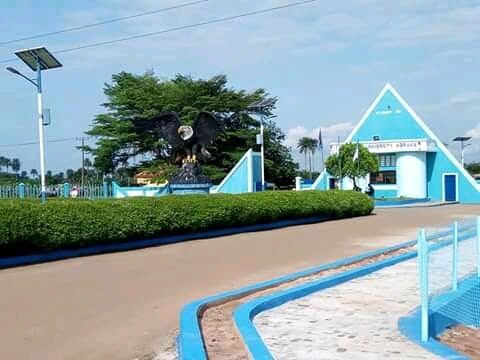 Delta State University which is popularly known as DELSU, is one of the most prestigious state owned university in Nigeria.
Delta State University which is popularly known as DELSU, is one of the most prestigious state owned university in Nigeria.
Delsu currently operates a multiple campus system with three distinct campuses, which are about 200 km apart.
The University has its main Campus located at Abraka, Delta State and other campuses in Anwai-Asaba and Oleh which are still in the same state, Delta.
Delta State University is one of the 25 federal universities that is been controlled, overseen and accredited by the National Universities Commission.
As of the time of this post, the University offers a wide range of educational programs, ranging from full time certificate, degree and diploma programs to part time weekend and evening degree programs.
Delsu also offers post graduate studies up to doctorate level.
The University possesses a student/staff counselling centre, an e-learning centre, students and lecturers accommodation facilities, sporting complex and host of other amenities.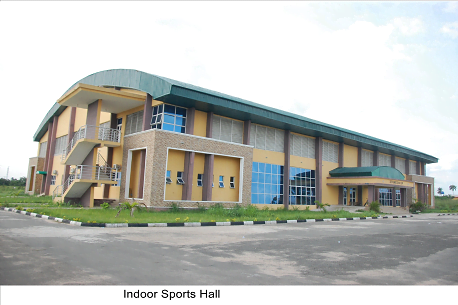
This unique university boasted of about 36,000 student population as at the 2007/2008 academical session.
Frequently Asked Questions about Delsu
We took our time to research about the frequently asked questions about Delsu and came up with a bunch of them.
What is the full meaning of Delsu?
Delsu is an abbreviation for Delta State university.
When was Delsu founded?
Delta state university was established in the year 1992.
What is the motto of Delta State University (Delsu)?
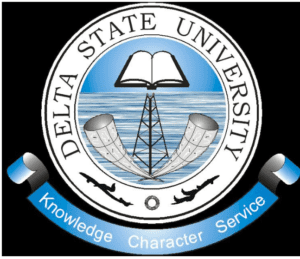 Knowledge Character and Service.
Knowledge Character and Service.
What is the official website of Delta state university (Delsu)?
The university has two official websites which it uses to disperse information to the public.
www.delsu.edu.ng and www.delsuonline.com
www.delsu.edu.ng offers every thing you need to know about the school such as weekly bulletins, library information, gallery, students admission status, etc.
While www.delsuonline.com offers portal services such as, students and admin logins, printing of school fees receipt, replacement of Lost identity cards, result checking, printing of departmental courses, etc.
Does Delsu offer Scholarships?
Delta state university offers scholarships, bursary, grants and different awards. The University has a special scholarship plan and grants to various categories of students.
Is Delsu a federal or state University?
Delta state university is a state owned university, which is overseen and accredited by the National University Commission
Where is Delsu Located?
Delsu is located in Delta state, Nigeria. It has it’s main campus in Abraka and other campuses in Anwai-Asaba and Oleh.
The History of Delsu
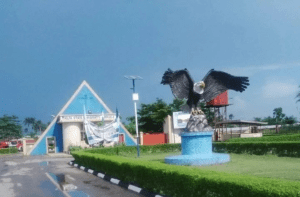 Delta State University(Delsu) was generally recorded as a center of Education.
Delta State University(Delsu) was generally recorded as a center of Education.
It began as a Government Teacher’s Training college during the colonial period and a few years into the post colonial times.
Delsu became an educational college that awarded the Nigerian Certificate of Education (NCE) from the year 1971 to 1985.
The University got affiliated with the University of Benin in the year 1981, and started offering degree programmes from 1981 till 1985.
Before it became the faculty of Education of the then Bendel State University with its main campus in Ekpoma.
The creation of Edo and Delta states in the year August 1991 and the conversion of the formerly known Bendel University Ekpoma, in December 1991 triggered the establishment of the independent Delta State University Abraka.
This move was carried out by the then Executive Governor of the state, Olorogun Felix Ibru on the 30th of April 1992.
Delta State University began with Five faculties at its early stage:
- Faculty of Education.
- Faculty of Agriculture.
- Faculty of Arts.
- Faculty of Science.
- Faculty of Social science.
In the year 1995, the State government enacted a policy which enabled the University to posses 3 campuses.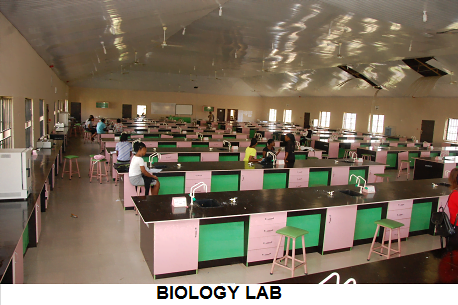
These campuses were distributed within the 3 senatorial districts of Delta state.
As a result of this enacted policy, the main Campus was established in Abraka, and the other campuses were established in Anwai-Asaba and Oleh.
Delsu Campuses and Their Faculties.
Delta State University’s academical programmes/faculties are currently distributed among the Campuses below.
Delsu Abraka Campus
 Abraka is an urhobo kingdom in Delta state, which has been made popular due to the fact that the main Campus of Delta state university (Delsu) is located there.
Abraka is an urhobo kingdom in Delta state, which has been made popular due to the fact that the main Campus of Delta state university (Delsu) is located there.
Faculties in Delsu Abraka Campus.
- Faculty of Education
- Faculty of Art
- Faculty of Social science
- Faculty of Pharmacy
- Faculty of Science
Delsu Anwai- Asaba Campus.
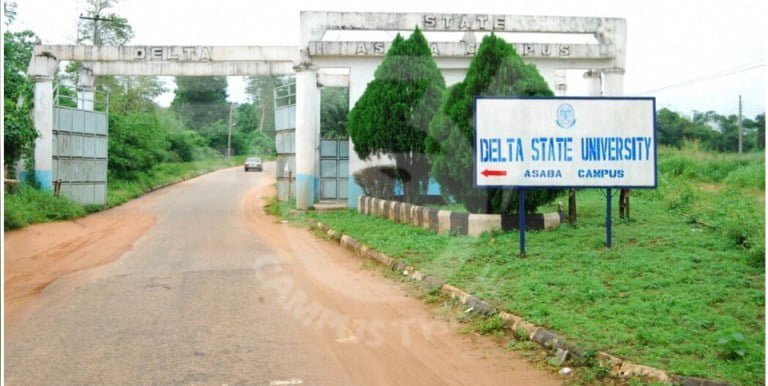 Asaba is a city found in Delta state, which is located at the western edge of the Niger River.
Asaba is a city found in Delta state, which is located at the western edge of the Niger River.
It is a fast growing urban area which possesses one of the Delta state university’s campuses.
Faculties in Anwai-Asaba campus
- Faculty of Agriculture
- Faculty of Accountancy
- Faculty of Environmental Studies.

Oleh Campus
Oleh, the headquarters of the Isoko south local government area is home to one of the Delta State University Campuses.
It was established as a result of the amended Edict in the year 1995
Facilities in Oleh Campus
- Faculty of Law
- Faculty of Engineering

Delsu Hostel Accommodation (Halls of Residence)
The state owned university offers a wide range of accommodation for both post graduate and undergraduate students.
These Halls of residence are distributed through out the various campuses.
Abraka Halls of Residence (hostel)
Male Accommodation
- Abraka hall for males
- Canon Mason Hall for males
- Medical hostel
Female Accommodation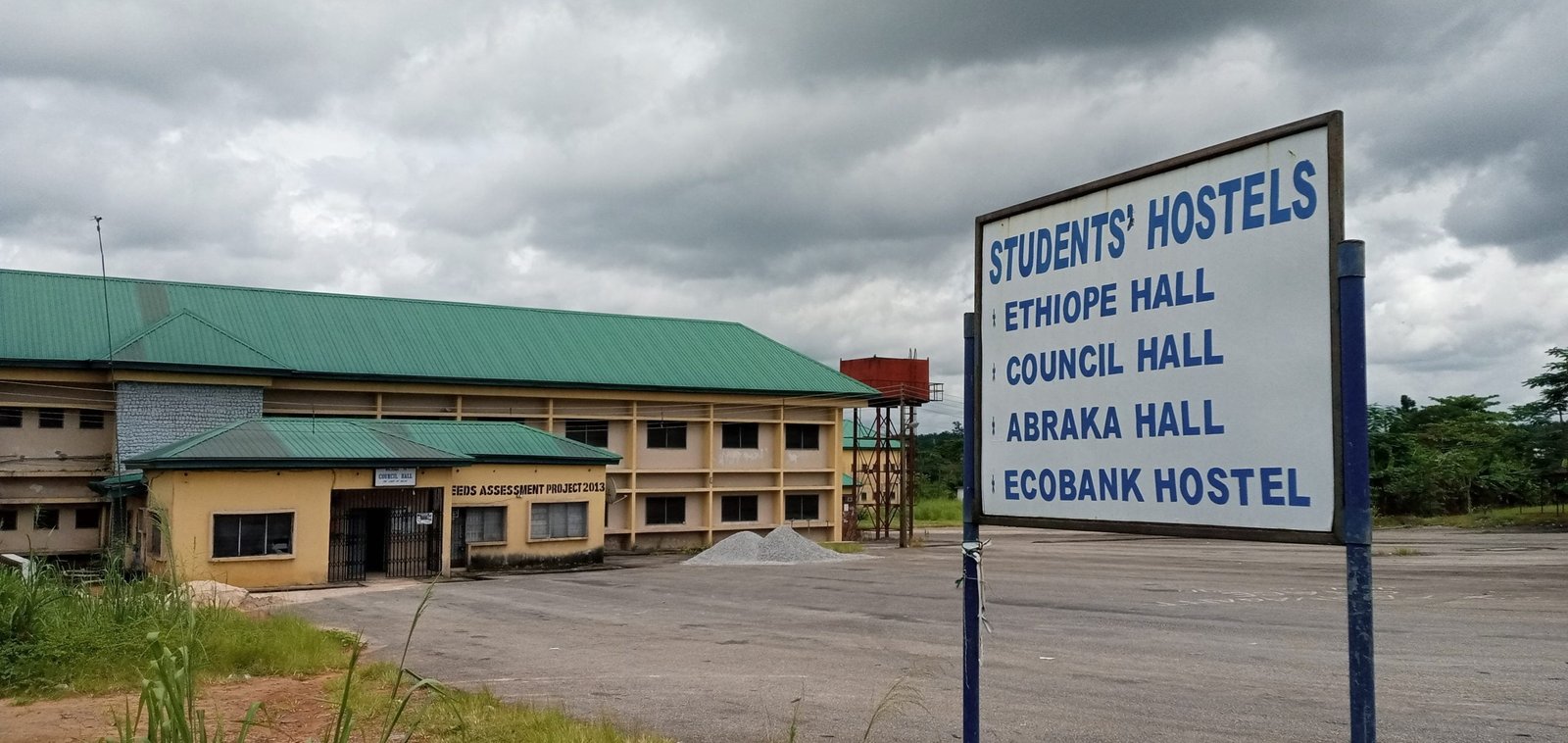
- Council Hall .
- Eco hall
- Ethiope hall
- Medical Hostel
- NDDC Hall
- Executive Hostel
Anwai halls of residence (hostel)
Male Accommodation
- Council Hall
Female Accommodation
- Asaba Hall
- Niger Hall
- NEEDS assessment hall
Delsu Oleh Halls of Residence (hostel)
Male accommodation
- Two government hostel
- Brooklyn hall
Female Accommodation
- Two Government Hostels
- Isoko Development Venture hostel
- Women Affairs Hall
See What Others are Reading
- How to Prepare a Personal Reading Time Table
- How to Improve your School grades
- 7 Degree Courses that will keep you self employed
If are unable to find what you are looking for here or maybe you have any correction regarding this post, kindly DROP A COMMENT below and we will respond to you as soon as possible.
Didn't find what you were looking for? Search here


